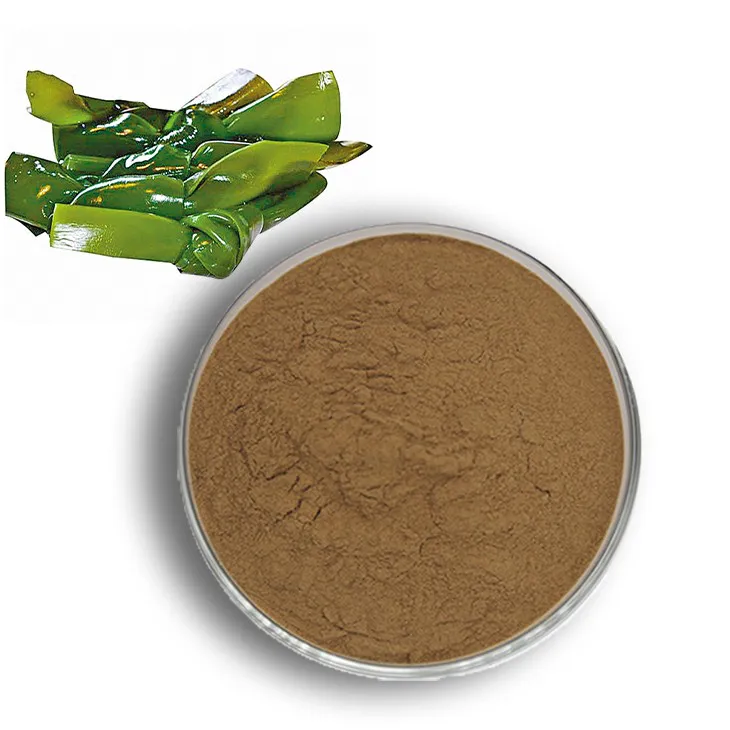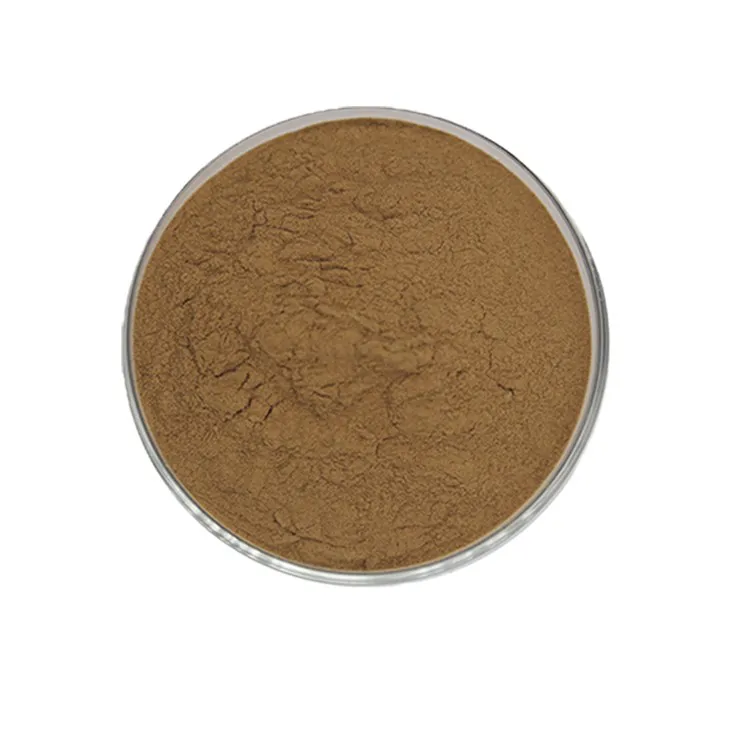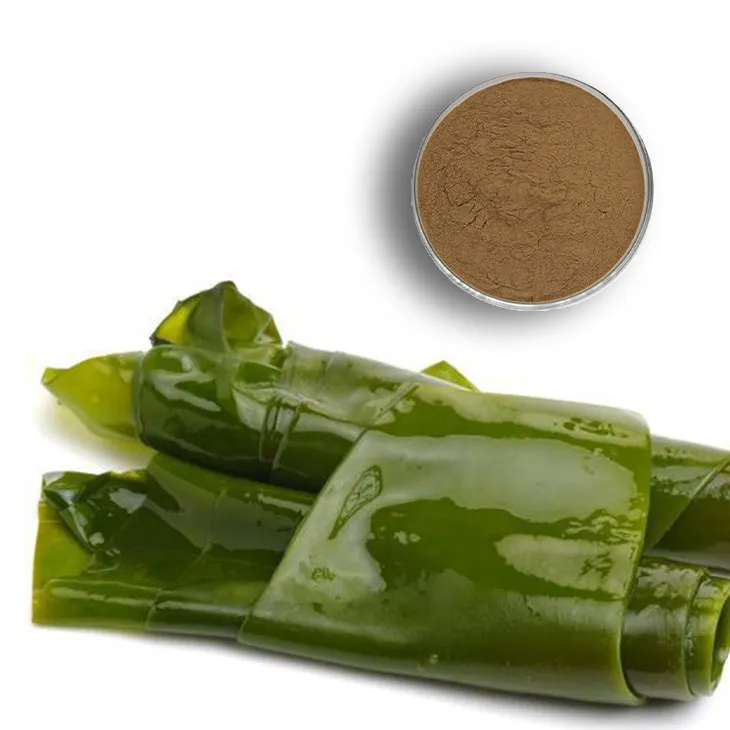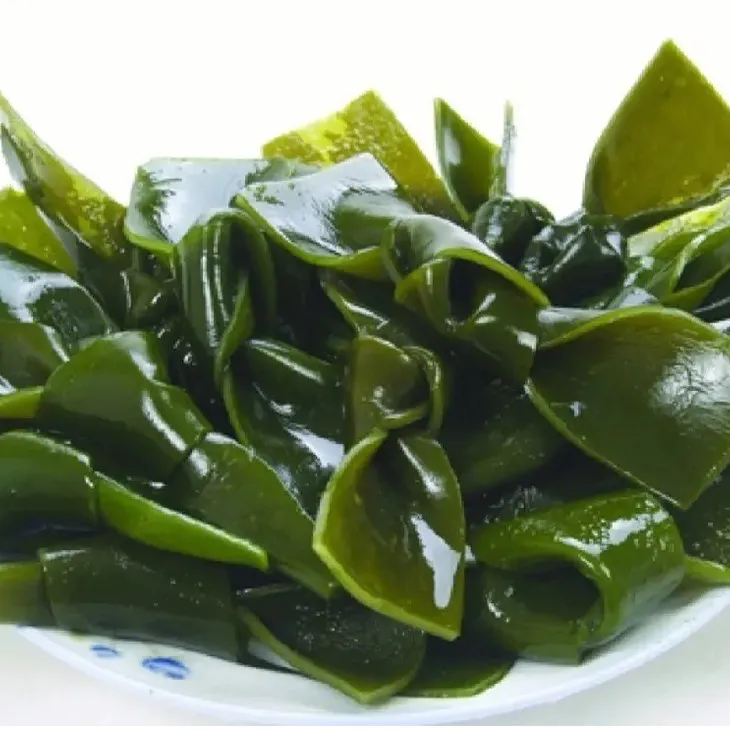- 0086-571-85302990
- sales@greenskybio.com
Benefits of Kelp Extract Powder in Cattle Feed.
2024-11-13

1. Introduction
In the world of cattle farming, the search for natural and effective feed additives is constantly evolving. Kelp Extract Powder has emerged as a promising addition to cattle feed, offering a wide range of benefits. Kelp, a type of large seaweed, is rich in various nutrients and bioactive compounds. When processed into extract powder, it can be easily incorporated into cattle feed, providing a natural and sustainable way to enhance the health and productivity of cattle.

2. Growth - Promoting Substances in Kelp Extract Powder
2.1. Unique Polysaccharides
One of the key components in Kelp Extract Powder that promotes growth in cattle is its unique polysaccharides. These complex carbohydrates play a crucial role in stimulating the growth and development of cattle. Polysaccharides in kelp are believed to interact with the digestive system of cattle in a positive way. They can enhance the absorption of nutrients from the feed, which is essential for the proper growth of cattle. For example, they may help in the better absorption of proteins, vitamins, and minerals. This improved nutrient absorption leads to increased body weight gain and overall growth of the animals.2.2. Hormonal Regulation
Kelp extract powder may also have an impact on hormonal regulation in cattle. It is thought to contain substances that can influence the endocrine system, which is responsible for regulating various physiological processes in the body, including growth. By promoting a balanced hormonal environment, kelp extract powder can contribute to more efficient growth. For instance, it may help in the regulation of growth hormones such as insulin - like growth factor (IGF - 1). An appropriate level of IGF - 1 is crucial for the normal growth of bones, muscles, and other tissues in cattle.
3. Improvement of Milk Quality
3.1. Increase in Milk Fat Content
The addition of kelp extract powder to cattle feed has been associated with an increase in milk fat content. This is due to the rich nutrient profile of kelp. It contains fatty acids, such as omega - 3 fatty acids, which can be transferred into the milk. These fatty acids not only contribute to the higher fat content but also improve the nutritional quality of the milk. Higher milk fat content is desirable in the dairy industry as it can affect the texture, flavor, and market value of the milk. For example, milk with a higher fat content is often used for the production of high - quality dairy products like butter and cream.3.2. Increase in Protein Content
In addition to increasing milk fat, kelp extract powder can also lead to an increase in milk protein content. The nutrients in kelp, such as amino acids and minerals, support the synthesis of milk proteins in the udder of cows. Proteins are a major component of milk and are important for its nutritional value. Higher protein content in milk is beneficial for the growth and development of calves when they consume the milk. Moreover, in the dairy industry, milk with higher protein content is often preferred for the production of products like cheese, as it can improve the yield and quality of the final product.
4. Antioxidant Properties
4.1. Protection Against Oxidative Damage
Kelp extract powder has significant antioxidant properties. Cattle are constantly exposed to various sources of oxidative stress, such as environmental pollutants, certain feed components, and normal metabolic processes. Antioxidants in kelp, such as phenolic compounds and carotenoids, can neutralize free radicals that are generated during oxidative stress. By protecting the cells of cattle from oxidative damage, kelp extract powder helps in maintaining the normal function of various organs and tissues. For example, it can protect the liver cells, which are involved in many important metabolic functions in the body. If the liver cells are damaged by oxidative stress, it can lead to a decrease in the overall health and productivity of the cattle.4.2. Long - Term Health and Productivity
The antioxidant protection provided by kelp extract powder is crucial for the long - term health and productivity of cattle. Cattle with better antioxidant defenses are less likely to suffer from diseases related to oxidative stress, such as inflammation and certain metabolic disorders. This means that they are more likely to have a longer and more productive lifespan. In the case of dairy cows, it can result in a longer lactation period with consistent milk production. For beef cattle, it can lead to better growth rates over a longer period, resulting in higher quality meat production.
5. Other Benefits
5.1. Immune System Enhancement
Kelp extract powder may also enhance the immune system of cattle. It contains various bioactive compounds that can stimulate the immune cells in the body. For example, some components in kelp can activate macrophages, which are important immune cells responsible for engulfing and destroying foreign invaders such as bacteria and viruses. A stronger immune system means that cattle are better able to resist diseases, reducing the need for antibiotics and other medications. This is not only beneficial for the health of the cattle but also for the safety and quality of the meat and milk products they produce.5.2. Digestive Health Improvement
The addition of kelp extract powder to cattle feed can improve the digestive health of cattle. The polysaccharides and other components in kelp can act as prebiotics, promoting the growth of beneficial bacteria in the gut. These beneficial bacteria play an important role in the digestion and absorption of nutrients. They can break down complex carbohydrates and fiber that are difficult for the cattle to digest on their own. A healthy gut microbiota also helps in preventing the overgrowth of harmful bacteria, reducing the risk of digestive disorders such as diarrhea and bloat.6. Incorporating Kelp Extract Powder into Cattle Feed
6.1. Dosage Considerations
When incorporating kelp extract powder into cattle feed, it is important to consider the appropriate dosage. The optimal dosage may vary depending on factors such as the age, weight, and breed of the cattle, as well as the composition of the existing feed. Generally, it is recommended to start with a small dosage and gradually increase it while observing the response of the cattle. For example, for young calves, a lower dosage may be sufficient, while for adult cows, a slightly higher dosage may be required. Over - dosing can potentially lead to negative effects, so it is crucial to follow the recommended guidelines.6.2. Compatibility with Other Feed Components
Kelp extract powder should also be tested for its compatibility with other feed components. It is important to ensure that it does not interact negatively with other additives or nutrients in the feed. For example, some minerals in kelp may interact with other minerals in the feed, affecting their absorption. Therefore, it is necessary to conduct proper feed formulation studies to ensure that the addition of kelp extract powder does not disrupt the balance of the overall feed. This may involve analyzing the nutrient content of the feed before and after adding the kelp extract powder and making any necessary adjustments.7. Conclusion
In conclusion, kelp extract powder offers numerous benefits when used in cattle feed. It acts as a natural source of growth - promoting substances, improves milk quality, provides antioxidant protection, and has other positive effects on the health and productivity of cattle. However, proper consideration should be given to dosage and compatibility when incorporating it into feed. With further research and proper application, kelp extract powder has the potential to become an important and sustainable component in the cattle - feeding industry, contributing to the production of high - quality meat and milk products.
FAQ:
Q1: How does kelp extract powder promote the growth of cattle?
The unique polysaccharides in kelp extract powder can stimulate the growth and development of cattle, thus serving as a natural source of growth - promoting substances.
Q2: Can kelp extract powder really improve the quality of cow milk?
Yes, it can. Due to its nutrient - rich profile, kelp extract powder may increase the milk fat and protein content, thereby improving the quality of milk produced by cows.
Q3: What role does the antioxidant property of kelp extract powder play in cattle?
The antioxidant properties of kelp extract powder protect cattle cells from oxidative damage, which ensures long - term health and productivity of cattle.
Q4: Are there any side effects when using kelp extract powder in cattle feed?
There is currently no evidence indicating significant side effects when using kelp extract powder in appropriate amounts in cattle feed. However, like any feed additive, it should be used according to recommended dosages and quality standards.
Q5: How should kelp extract powder be added to cattle feed?
The specific amount and method of adding kelp extract powder to cattle feed may vary depending on factors such as the type of cattle, growth stage, and overall feed composition. It is usually recommended to follow the instructions provided by veterinarians or professional feed manufacturers.
Related literature
- The Role of Kelp - Derived Nutrients in Livestock Nutrition"
- "Beneficial Effects of Seaweed Extracts in Bovine Health and Production"
- ▶ Hesperidin
- ▶ Citrus Bioflavonoids
- ▶ Plant Extract
- ▶ lycopene
- ▶ Diosmin
- ▶ Grape seed extract
- ▶ Sea buckthorn Juice Powder
- ▶ Fruit Juice Powder
- ▶ Hops Extract
- ▶ Artichoke Extract
- ▶ Mushroom extract
- ▶ Astaxanthin
- ▶ Green Tea Extract
- ▶ Curcumin
- ▶ Horse Chestnut Extract
- ▶ Other Product
- ▶ Boswellia Serrata Extract
- ▶ Resveratrol
- ▶ Marigold Extract
- ▶ Grape Leaf Extract
- ▶ New Product
- ▶ Aminolevulinic acid
- ▶ Cranberry Extract
- ▶ Red Yeast Rice
- ▶ Red Wine Extract
-
Red Wine Extract
2024-11-13
-
Alfalfa Meal
2024-11-13
-
Lemon Extract
2024-11-13
-
Maca Extract
2024-11-13
-
Fenugreek Extract Powder
2024-11-13
-
Cactus Extract
2024-11-13
-
Giant Knotweed Extract
2024-11-13
-
Agaricus Blazei Extract
2024-11-13
-
Chia Seed Powder
2024-11-13
-
Yellow Pine Extract
2024-11-13





















